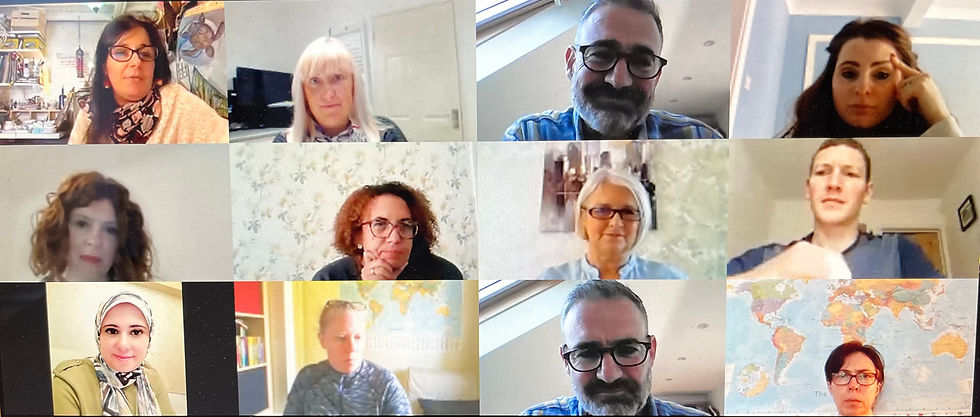Mae West was a legendary playwright and movie star in the 1920s and 30s. She was also a salacious wit who once quipped: “keep a diary and someday it’ll keep you”. I doubt that this is what John Naughton had in mind when he started his amazing online diary. I am not the only member of HertsCam to have discovered this remarkable source of intellectual nourishment and entertainment. As well as pointers to stuff he has been reading, he always includes one of his great photos and a link to an amazing piece of music.

So, what led me to this? I have had the privilege of running into John at Wolfson College where we both like to drop in for breakfast and, over the full English, he would urge me to get blogging. I had a go at this in various ways; some of you may have seen a few posts on the HertsCam website for example, but I wanted to find a better way to do it. A few months ago, I searched for John’s blog on Substack so I could see how it is done but what I discovered was his online diary. I was amazed and still can’t begin to imagine how he manages to produce such high-quality work on a daily basis. I am ashamed to say that my feelings of admiration led to dismay. I thought that I could never aspire to that level of brilliance; in comparison I would always come over as dull. But then, as I read more of John’s output, my feelings turned into something more productive. I realised that measuring your own ability against someone else’s is utterly futile. Instead, I needed to see this as a signal that publishing brief, accessible pieces is something I ought to be doing. Of course, I knew I would enjoy doing it once I got into a rhythm, but more importantly, I felt an obligation to share ideas with others who may be interested in teacher leadership. I was truly inspired to start the blog that you are now reading.
I witnessed a process of mutual inspiration recently when I attended a HertsCam Network Event. It took place online in what teachers call the ‘twilight’ slot, after the day’s teaching has finished. Around 50 teachers gathered to share stories about leading change in their schools. A few individuals had volunteered in advance to speak, but what they brought to the table were not triumphalist speeches designed to disseminate best practice, but informal accounts of works in progress that would spark the dialogue. For example, Simon Cipolla, a Modern Foreign Languages Teacher, had been developing a mentoring scheme in which he was trying to recruit Year 12 students (aged 16-17) as ‘academic mentors’ for younger students who had been identified as under-performing. He provided workshop sessions for the volunteers to prepare them for the challenge of mentoring. He taught them to adopt a holistic approach rather than focusing narrowly on something like exam questions. He shared what he had learnt from his reading about motivation, especially guidance from a US-based motivational speaker James Clear. He had explained to the mentors that you need to focus on identity and mindset. The project had been extended across the whole school, but Simon was still striving to encourage more Yr 12 students to volunteer. He asked advice from colleagues in his breakout session.

Colleagues engaged enthusiastically with Simon’s story, expressing support, asking questions and talking about their own related practice. It seemed clear to me that, through this critical friendship, they were becoming even more committed to their own efforts to innovate and improve. What Simon was teaching us was not just the technicalities of how to develop a mentor programme, he was essentially sharing a story about moral choice. He had recognised that some Yr 11 students were not achieving the best they were capable of and this had to be remedied. He wasn’t doing this because it is his responsibility. It doesn’t feature in his job specification. He just saw a problem and wanted to do something about it. This sense of moral purpose is of course infectious. Through such discussions, teachers engender feelings of solidarity. They experience being part of a community of practice in which they share and promote certain values. The most important of these underpins the principle that we should all strive to maximise the life chances of our students by developing better practice. As Simon discovered, it’s about identity. Through our networking we reinforce the belief that people like us do this sort of thing. That is mutual inspiration in action.
Comments